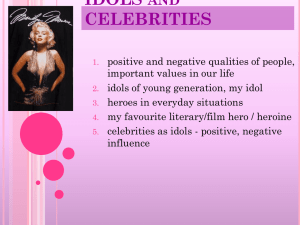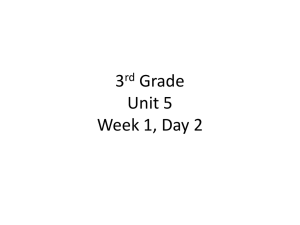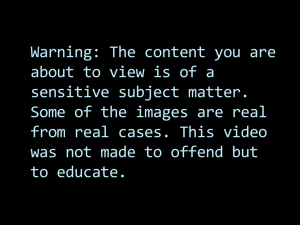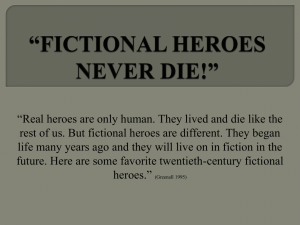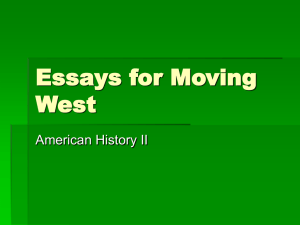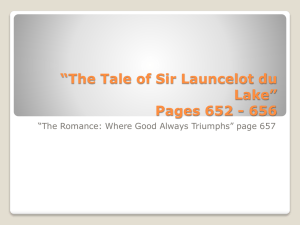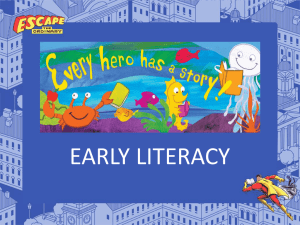Explanation teaching sequence
advertisement
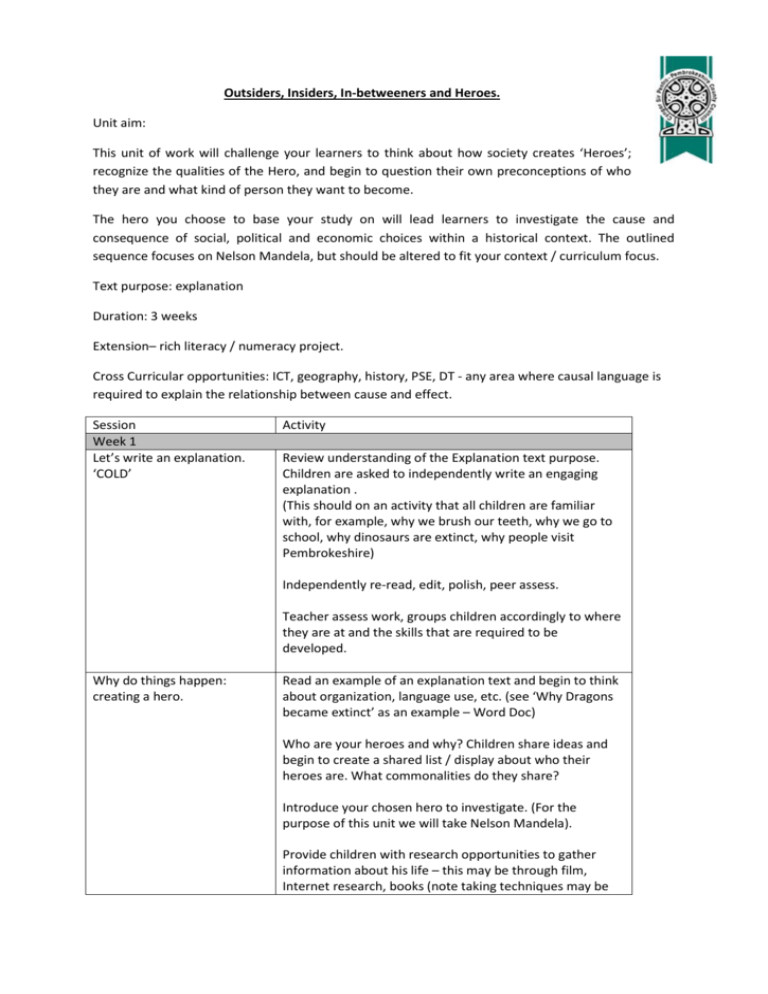
Outsiders, Insiders, In-betweeners and Heroes. Unit aim: This unit of work will challenge your learners to think about how society creates ‘Heroes’; recognize the qualities of the Hero, and begin to question their own preconceptions of who they are and what kind of person they want to become. The hero you choose to base your study on will lead learners to investigate the cause and consequence of social, political and economic choices within a historical context. The outlined sequence focuses on Nelson Mandela, but should be altered to fit your context / curriculum focus. Text purpose: explanation Duration: 3 weeks Extension– rich literacy / numeracy project. Cross Curricular opportunities: ICT, geography, history, PSE, DT - any area where causal language is required to explain the relationship between cause and effect. Session Week 1 Let’s write an explanation. ‘COLD’ Activity Review understanding of the Explanation text purpose. Children are asked to independently write an engaging explanation . (This should on an activity that all children are familiar with, for example, why we brush our teeth, why we go to school, why dinosaurs are extinct, why people visit Pembrokeshire) Independently re-read, edit, polish, peer assess. Teacher assess work, groups children accordingly to where they are at and the skills that are required to be developed. Why do things happen: creating a hero. Read an example of an explanation text and begin to think about organization, language use, etc. (see ‘Why Dragons became extinct’ as an example – Word Doc) Who are your heroes and why? Children share ideas and begin to create a shared list / display about who their heroes are. What commonalities do they share? Introduce your chosen hero to investigate. (For the purpose of this unit we will take Nelson Mandela). Provide children with research opportunities to gather information about his life – this may be through film, Internet research, books (note taking techniques may be required to be modelled for this activity). Share information about Mandela’s life – create a class time line and discuss how Mandela was marginalised. Why do things happen: creating a hero 2? Read and box up another example of an explanation text (T4W technique – see Pie Corbett’s resources for examples of these if you are stuck) Review Mandela’s time line. Discuss the qualities that he showed which allowed him to take on hero status. This could include: showing self-sacrifice, experiencing downfall, having a tragic flaw, a sense of him being ‘greater than life’, showing the ability to forgive, moving from being an outsider to insider. Explain a Hero Reasons written More reasons written Extension: Week 2 Fictional heroes In groups children use the timeline and work out connections between what happened during Mandela’s life and the effect / consequences. Create cause / effect diagrams . As a class plan an explanation text about ‘Why Mandela became a Hero’. Begin to learn an introduction using T4W techniques (see example in Word Doc). Once secure children should write and then review (more able children could work on immediate imitation of this and change it to an explanation about one of their own heroes, or a hero from a book) Review introduction of explanation text from yesterday. Learn the first paragraph and write and review (again more able can work on immediate imitation) Review introduction and first paragraph. Learn second paragraph and conclusion, write and review. (more able continue to imitate). Learners could be encouraged to make a list of heroes from books they have read, identifying how they are outsiders / have been marginalized. Learners could find out about classic British authors who have come from marginalized circumstances to become iconic literacy figures. This week children will consider how ‘heroes’ are created in film. Collect children’s ideas about heroes in films. In what circumstances have the heroes been created? Create character profiles. Think about how their journey through the film has shifted them from marginality (outsider status) into hero ? Eg)Harry Potter, Spy Kids, Wizard of Oz, Goodnight Mr Tom, Hugo, Annie, Lion King, Star Wars, The Hobbit, Indianna Jones ,ET, Napoelan Dynamite. Using last week’s explanation text as a model, children gather information in order to ‘imitate’ an explanation text. Emphasis on finding the causes and consequences of the characters development. Fictional heroes: a shared explanation Watch short film / animation – in groups / pairs discuss development of the hero examples from Lit shed? Using information gathered about the journey of one character through a film imitate explanation text as a shared writing experience. (More able could work independently or as a small group on a different film character) Rehearsal: what do I do? Watch more short film / animation and discuss hero development. Choosing a heroic character of their choice (from film) children write an explanation text, using the Mandela model. Peer review, edit Truman Show and real heroes Introduce the film The Trueman show (watch clip of start and end). Discuss reality TV, watching preferences, ‘characters’ they are aware of and from which TV shows (Big Brother, X factor etc). Make a class list. Rewatch the end clip. Discuss the feelings of the ‘viewers’ of the show and why they celebrated the release of Trueman – is it because they are willing him to do something they themselves are unable to do? Can they see an element of themselves in him? Are they trapped in a different way? Do they feel empowered through the actions of others? Does he give them hope through his act of escaping the show? Why have the contestants on Reality Shows become popular? What traits do they have in common – how do these compare to the traits of a hero? Extension: Circle time on what sort of person they wish to become, and how they will achieve it Investigate the idea of the ‘Hero’s Journey’ (see ppt document). Watch films / read books and consider how the path is walked. Week 3 Innovation: explaining heroes. (Preparation for the HOT write) Re watch Trueman show clips and review learning Provide context for the HOT write: children will be innovating on their original Mandela explanation text in order to explain the development of another hero. A hero of their creation - themselves. Children could be given a physical stimulus, a photograph, a powerful sentence, to inspire the design of their heroic creation. An emphasis could be made on the power of noble, self sacrifice in the face of marginalization and social injustice. Children plan: choose a context, a reason their character is marginalized (gender, race, age, ability, class, wealth, education). Create a timeline and plan the points in their future life where events occur that develop them as a hero. What choices do they have to make, what actions do they have to take? What problems do they help to alleviate? Innovation: Continue planning. (Preparation for the HOT write) HOT write Teacher models planning and writing. HOT write: independent writing ‘How I became a hero’ Peer edit and review (compare to COLD write and discuss learning)


